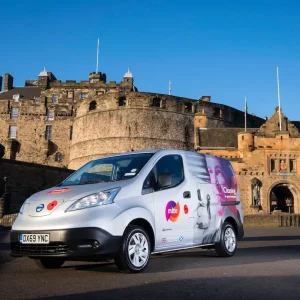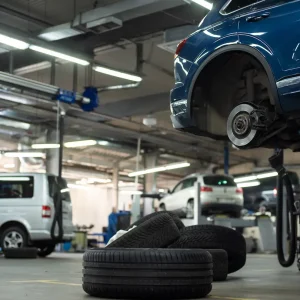By rejecting European Community proposals to reduce CO2 emissions, the CEOs of leading carmakers are choosing to ignore what is being achieved in the UK, writes Rupert Saunders
In more than 30 years of reporting the automotive industry, I have been to some memorable press conferences and many that have long since been forgotten. But never before have I witnessed the commercial firepower that lined up at Frankfurt motor show to defend the carmakers’ position on CO2 emissions.
In a rare display of common purpose, the CEOs of the eight leading European carmakers even treated photographers to a group hug. But the body language was fascinating: Fiat‘s Sergio Marchionne seemed totally relaxed in casual trademark sweater, while a suited and booted Lewis Booth of Ford looked faintly embarrassed to be there.
Equally fascinating was the clear impression left at the end of the press conference that European carmakers have no concrete responses to counter the European Commission’s proposal to reduce average vehicle emissions to 120g/km by 2012. Okay, the CEOs rejected this target (and a compromise proposal of 130g/km from engine technology alone) but they didn’t offer any firm alternative.
So, where are we going with CO2?
The good news is that emissions from business car fleets continue to fall. The latest figures from contract hire operator ALD Automotive suggest the average for vehicles joining its fleet in 2006 was 154.7g/km while this year’s figure is roughly the same.
This is well ahead of the average for private cars, which currently stands at 167.2g/km according to the SMMT. But it’s still well adrift of the carmakers’ voluntary target of 140g/km by 2008. Indeed, according to pressure group the European Federation for Transport and Environment, the current pan-European average for all carmakers is 160g/km.
|
“There is plenty of evidence that, faced with a tough regulatory framework and financial incentives, significant reductions can be made.” |
|
Rupert Saunders |
So carmakers are caught between a political rock and a hard place. If they don’t come up with any firm proposals then the policy makers in Brussels are likely to seize the initiative. But any firm figure they propose has to be achievable and is likely to remind people what little progress has been made so far.
At the press conference in Frankfurt the carmakers were keen to emphasise that a target of 120g/km cannot be achieved by vehicle technology alone. Yet there is plenty of evidence that, faced with a tough regulatory framework and financial incentives, significant reductions can be made.
The new Ford Focus Econetic offers a 1.6-litre diesel under the magic 120g/km, while more complex Efficient Dynamics from BMW bring the 118d also under that figure. The new Mondeo is being engineered to bring it below 140g/km and even the BMW X5 will drop under the 225g/km band by the year-end.
Why are these models being developed now? Quite simply because the UK business car market is leading the way. With our CO2-based tax regime and the threat of a London congestion charge based on emissions, carmakers have been quick to find engineering-led solutions that benefit us all.
Now all they need to do is get their political message right. If they can achieve these reductions in the UK market, why can’t they do it for the rest of Europe?





